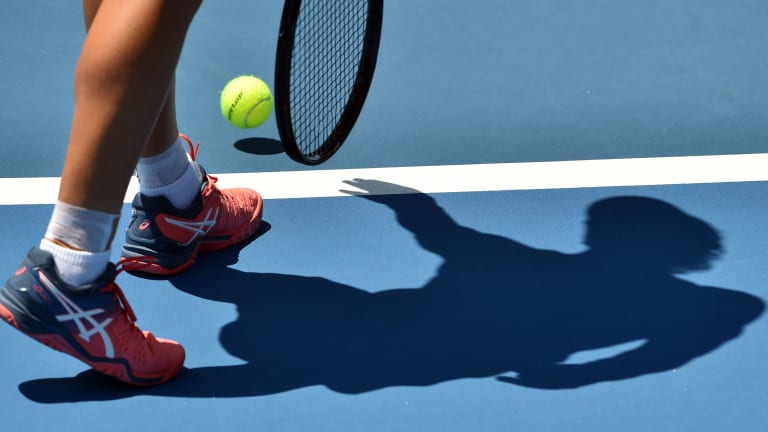“Pressure is a privilege,” Bille Jean King says. It’s also an inescapable fact of every tennis player’s life. With the recent advent of the Universal Tennis Rating (UTR), that pressure has only been ratcheted up for rec players. Now that we have a specific number attached to our names, we know exactly who we shouldn’t lose to.
How can we alleviate some of that stress? Even better, how can we use it to our advantage?
This week, our 5-step plan outlines how to take the pressure off yourself—and put it on your opponent. In case you missed it, Step 1, Step 2, Step 3 and Step 4.
Don’t Be Afraid to Care About the Outcome
“Trust the process” is a popular phrase in sports these days. Every mental coach will tell you that the less you worry about the outcome of a match, and the more you concentrate on the process of getting the outcome you want, the better off you’ll be. Believing that you “should” win any match is a kiss of death, according to Greenwald.
“‘Should’ is a six-letter swear word in tennis,” he says. “Players who have that ego investment may fear a negative end result, and stop focusing on the task at hand.”
